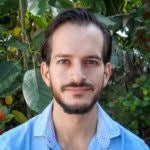 I decided to spend my summer immersion working in Mexico City’s Ministry of Health to learn how the government functions from within, intending to evaluate the possibility of working with them after finishing the DrPH program. I was enthusiastically looking forward to working hard and giving them excellent results. However, I would soon find out that flexibility, patience, and being mindful of the labels we may carry for others were even more important than hard work for achieving results.
I decided to spend my summer immersion working in Mexico City’s Ministry of Health to learn how the government functions from within, intending to evaluate the possibility of working with them after finishing the DrPH program. I was enthusiastically looking forward to working hard and giving them excellent results. However, I would soon find out that flexibility, patience, and being mindful of the labels we may carry for others were even more important than hard work for achieving results.
My original plan for the immersion was to generate the first draft of a manual on the implementation process of the Integrated Healthcare Networks Program in Mexico City. This program intends to homogenize and integrate the services of the City’s sixteen Sanitary Jurisdictions to increase the system’s patient experience, quality, and efficiency. Currently, each Alcaldía (district) in Mexico City has a Sanitary Jurisdiction in charge of the provision of health services in their geography, and they are administratively and operationally independent from one another. I had planned to conduct interviews with key stakeholders and staff at all levels of some Sanitary Jurisdictions to get a comprehensive idea of the challenges and opportunities we had. Given the short amount of time I had, I wanted to start as soon as possible with the interviews.
The first unexpected challenge that I found was gaining the trust of my supervisors. The current Minister of Health and top health officials in Mexico City differ from Dr. Julio Frenk—a former Minister of Health and architect of the universal healthcare system—on the direction that the Mexican Healthcare System should pursue. Because I was coming from the Harvard Chan School of Public Health where Dr. Frenk had been the school’s dean, I first needed to gain their trust before contributing to the project. My supervisor had been trained in Cuba and favored the Cuban approach to public health over Dr. Frenk’s. I had not considered before the immersion that, as a professional coming from Harvard, I would be associated with the labels that Harvard has for the people I would work with. I needed to be conscious of what those labels could be.
For the first couple of weeks, I was assigned to read and discuss the documents that expressed the healthcare philosophy that the current administration wanted to implement in the City, which builds upon ideas of the Latin American Social Medicine school of thought. My supervisor and his colleagues were incredibly generous with their time and taught me about the evolution of public health institutions in the City and in the whole country. Through these conversations, I learned about the local nuances that are crucial to any healthcare reform initiative in the Mexican context. I gained their trust by attentively listening to them and showing them that I was coming with a “beginner’s mind,” open and wishing to learn from them.
Even though I wanted to move faster towards the main objectives of my immersion, I acknowledged that my supervisors needed to evaluate where I was politically (i.e., to know if I favored or was against their perspectives on public health, which in the case of Mexico are associated with left-wing politics). The leadership expert Ronald Heifetz highlights that it is paramount to understand the organization’s political relationships and think politically whenever we enter a new organization.1 He argues that we need to understand the conflicting interests and levels of power in the organization. After this experience, I would also add that we should conduct an ideological diagnosis of the organization. What are their values, position and goals? Where do these values come from? What values do I represent to them? How do their values relate to my own? Based on the previous questions: What conflicts may emerge between us? How can we best collaborate, given our differences and similarities?
Once we had established a relationship of mutual trust after three weeks of conversations, we started to move forward with the objectives of the immersion. At first, we made fast progress because the COVID pandemic was at its lowest point in the City since its beginning. However, as cases in the City started to rise in July, the efforts of the personnel at the MOH shifted again towards the COVID-19 response, which dramatically slowed down our progress.
As the weeks passed and our pace of work slowed, I realized that it would be difficult for me to finish the deliverables I had committed to at the start of the project. I understood that I needed to be flexible with the finish date of the immersion and the activities I would conduct if I wanted to deliver a good end product to them. So after a conversation, my supervisor and I agreed that I would continue working with them for three extra weeks beyond what we had initially decided and adapt my work plan to what could be done in these challenging circumstances.
The immersion reaffirmed to me that flexibility in our work, schedules, and duties is essential if we want to support organizations, including the willingness to accommodate others’ pace of work and emerging needs. I also learned that I need to be conscious of the labels I may carry for others and unconsciously assign to others. Only then will we make them explicit and navigate through them to find common ground for collaboration.
References
- Heifetz, R. A., Heifetz, R., Grashow, A., & Linsky, M. (2009). The practice of adaptive leadership: Tools and tactics for changing your organization and the world. Harvard Business Press.



